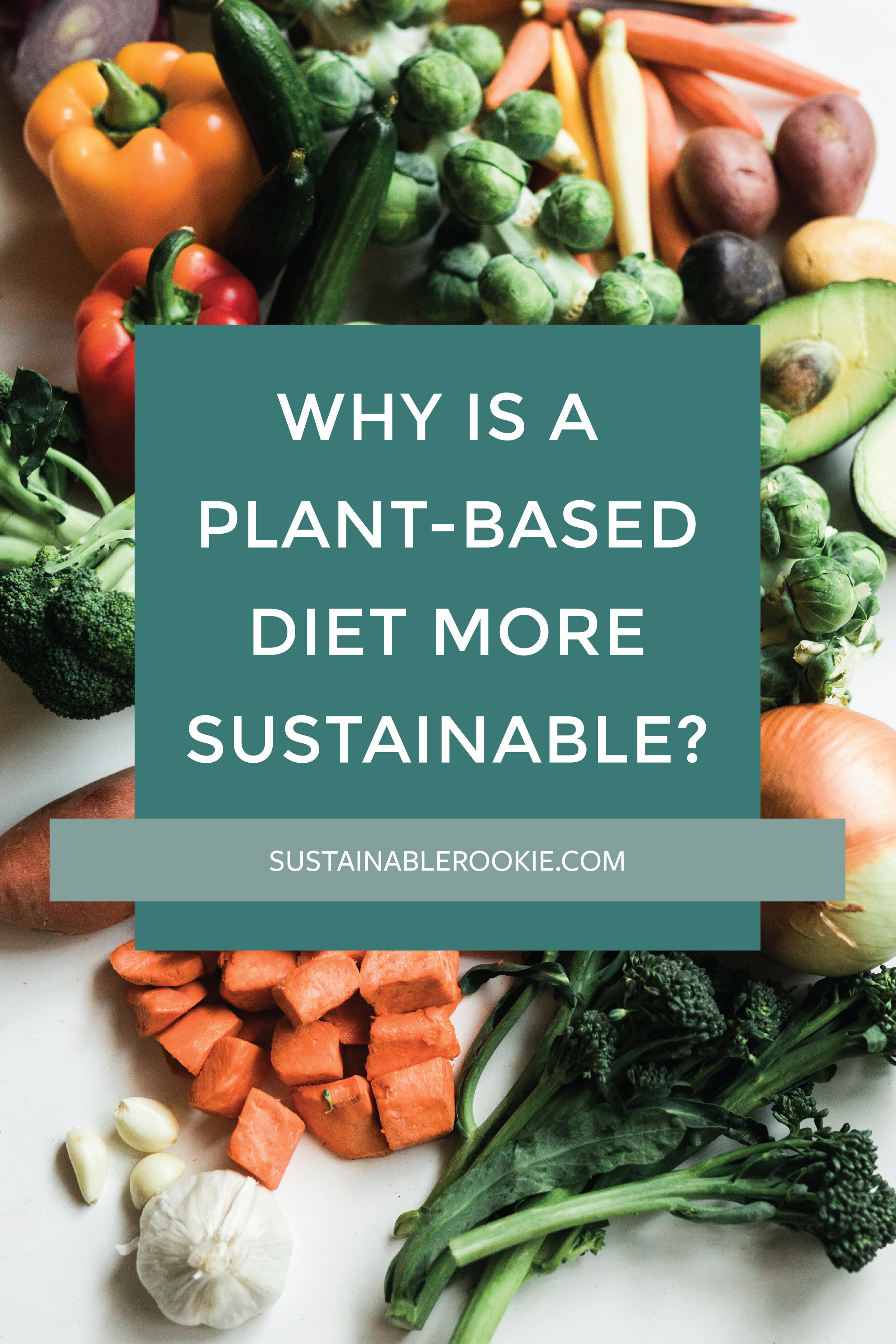Why Sugar Free Sauces Are a Game-Changer for Your Plant-Based Pantry
Why Sugar Free Sauces Are a Game-Changer for Your Plant-Based Pantry
Blog Article
Everything About Healthy And Balanced Food: Advantages of Enjoying Plant Based Choices
The discussion surrounding plant-based diets has obtained substantial focus in current years. Numerous individuals are exploring the possible wellness benefits, nutritional benefits, and environmental impacts connected with these nutritional options. As people become extra familiar with their food's influence on health and sustainability, inquiries emerge about the functionalities of adopting such a lifestyle. What details modifications can one expect, and how might these selections reshape not only individual health yet likewise the planet's future?
Recognizing Plant-Based Diet Plans
Numerous individuals associate plant-based diet plans mainly with vegetarianism or veganism, these diet plans can incorporate a broad array of eating patterns that focus on entire, minimally processed plant foods. Such diet regimens typically consist of fruits, vegetables, entire grains, seeds, nuts, and legumes, while getting rid of or restricting animal products. This adaptability allows individuals to customize their nutritional choices according to personal choices and dietary needs. Some may embrace a primarily plant-based diet regimen while still sometimes consuming meat or dairy products, usually referred to as a flexitarian technique. The emphasis continues to be on incorporating more plant foods, which can cause a varied selection of flavors and meals. Comprehending these different interpretations of plant-based eating is crucial for appreciating its ease of access and charm in modern food society.
Wellness Conveniences of Plant-Based Foods
The health and wellness advantages of plant-based foods are substantial, supplying a nutrient thickness benefit that sustains total health. Study indicates that these foods can improve heart health and play a vital function in efficient weight administration. By integrating much more plant-based choices, individuals may enhance their dietary selections and advertise lasting health and wellness.
Nutrient Density Advantage
Nutrient density plays an essential role in the wellness advantages of plant-based foods, making them a compelling selection for those looking for a balanced diet. Plant-based foods, such as fruits, vegetables, beans, nuts, and entire grains, are commonly rich in vital vitamins, minerals, and antioxidants while being reduced in calories. This high nutrient thickness permits people to take in fewer calories while still fulfilling their nutritional requirements. Additionally, these foods are loaded with nutritional fiber, advertising digestion health and aiding in weight monitoring. By incorporating nutrient-dense plant-based choices, consumers can boost their general wellness, sustain their body immune systems, and lower the danger of chronic conditions. Eventually, the nutrient density of plant-based foods highlights their importance in a health-conscious way of living.
Heart Health Renovation

Weight Administration Assistance
In enhancement to advertising heart health, a plant-based diet regimen can significantly help in weight monitoring. This nutritional approach stresses entire foods such as fruits, vegetables, vegetables, nuts, and whole grains, which are normally reduced in calories and higher in fiber compared to animal-based items. The high fiber web content helps raise satiation, reducing overall calorie consumption. Plant-based diets are often abundant in important nutrients while reduced in undesirable fats, making it less complicated to maintain a healthy weight. Research shows that individuals who take on a plant-based way of living often tend to have reduced body mass indexes (BMIs) and experience even more successful weight-loss contrasted to those that consume meat-heavy diets. Consequently, embracing plant-based choices is a strategic choice for reliable weight administration
Nutritional Value of Plant-Based Active Ingredients
Plant-based active ingredients are abundant in crucial nutrients, offering a diverse selection of vitamins, minerals, and anti-oxidants that contribute to overall health. A contrast of healthy protein resources discloses that while pet items are frequently seen as exceptional, several plant-based alternatives offer adequate protein and other beneficial substances. Understanding the dietary value of these components can aid people make informed dietary options.
Important Nutrients in Plants
Nutrient-rich components discovered in plants offer a varied selection of necessary minerals and vitamins that contribute considerably to general health and wellness. These active ingredients are abundant in vitamins A, C, and K, which sustain immune function, vision, and blood clot, specifically. On top of read review that, plants provide crucial minerals such as potassium, magnesium, and calcium, essential for heart health, muscle feature, and bone strength. The visibility of fiber in plant-based foods help digestion and advertises a healthy and balanced digestive tract microbiome. Antioxidants, found generously in fruits and vegetables, aid combat oxidative stress and anxiety and lower swelling. Additionally, lots of plant foods are low in calories yet high in nutrients, making them a superb choice for those seeking to keep a healthy and balanced weight while guaranteeing ideal nutrient intake.
Comparing Protein Sources
Healthy protein resources vary significantly in their nutritional accounts, with plant-based active ingredients supplying special benefits. Unlike animal proteins, which usually have hydrogenated fats and cholesterol, plant proteins tend to be lower in these harmful elements. Legumes, nuts, seeds, and whole grains are rich in essential amino acids, fiber, vitamins, and minerals. Lentils give high healthy protein material alongside considerable iron and folate, while quinoa is a complete healthy protein, offering all nine crucial amino acids. Furthermore, plant-based proteins are usually gone along with by anti-oxidants and phytochemicals that support general wellness. The shift to plant-based healthy protein sources not only enhances nutritional consumption however additionally straightens with lasting dietary techniques, lowering environmental effect and advertising long-lasting wellness benefits.
Ecological Impact of Plant-Based Eating
As recognition of climate adjustment grows, lots of people are exploring lasting nutritional choices that can substantially reduce their ecological click site impact. Plant-based eating has become a significant factor to lowering greenhouse gas emissions, which are mostly connected with livestock manufacturing. The farming of fruits, grains, beans, and vegetables normally calls for fewer resources, such as water and land, compared to animal farming. Furthermore, plant-based diet regimens can lead to decreased deforestation, as less land is needed for grazing animals or expanding pet feed. By changing in the direction of plant-based alternatives, consumers can support biodiversity and promote healthier ecological communities. Overall, embracing plant-based eating not only benefits personal health but also represents an important step towards ecological sustainability and preservation initiatives.
Conquering Common Misconceptions
While several people recognize the benefits of a plant-based diet, several false impressions frequently discourage them from completely embracing this lifestyle. A common belief is that plant-based diet regimens do not have enough healthy protein; nevertheless, various plant sources, such as legumes, nuts, and tofu, provide enough healthy protein. Furthermore, some presume that this diet is expensive, when as a matter of fact, staples like beans, rice, and seasonal veggies can be rather cost effective. One more mistaken belief is that plant-based eating is extremely restrictive, whereas it in fact uses a diverse array of tastes and foods. Finally, many fret that a plant-based diet may bring about shortages, yet with appropriate planning, people can obtain all essential nutrients, consisting of minerals and vitamins, while delighting in a wide selection of tasty dishes.
Tips for Transitioning to a Plant-Based Way of living
Making the shift to a plant-based way of living can be an enhancing experience, though it usually needs some advice to navigate the preliminary modifications. Individuals are motivated to begin progressively, incorporating even more fruits, veggies, legumes, and whole grains right into their dishes while reducing meat and dairy products usage. Dish planning is vital; preparing an once a week menu can aid ease the modification and protect against final unhealthy options. Checking out cooking approaches and brand-new dishes can also preserve and boost the experience exhilaration about plant-based eating. Additionally, joining support groups or neighborhoods can give inspiration and share beneficial tips. Finally, staying informed about nutrition guarantees balanced meals, avoiding shortages while fostering a healthy, rewarding plant-based way of life.
Delicious Plant-Based Dish Concepts
Exploring tasty plant-based meal concepts can influence people to embrace a more nourishing diet regimen. One prominent alternative is a passionate quinoa salad, featuring cherry tomatoes, cucumber, and a tangy lemon-tahini dressing. Another fave is a savory lentil stew, packed with carrots, celery, and aromatic herbs, perfect for a reassuring supper. For morning meal, overnight oats made with almond milk, chia seeds, and covered with fresh berries offer a healthy start to the day. Additionally, a dynamic vegetable stir-fry with tofu and a variety of vivid veggies can be a fast yet satisfying meal. Lastly, luscious avocado salute on whole-grain bread, sprinkled with seeds and flavors, uses an easy yet tasty treat. These dishes display the range and splendor of plant-based eating.

Often Asked Concerns
Can a Plant-Based Diet Offer Enough Healthy Protein?
The concern of whether a plant-based diet can offer adequate protein is typical. Various resources, consisting of vegetables, nuts, seeds, and entire grains, can fulfill protein requires efficiently, sustaining a nutritious and balanced diet plan for people.
Are Plant-Based Diets Appropriate for Children?
The suitability of plant-based diets for children relies on cautious planning. Ample nutrients have to be ensured, consisting of minerals, healthy proteins, and vitamins. With proper support, such diet regimens can support healthy growth and growth in kids.
Just how Do I Eat in restaurants on a Plant-Based Diet plan?
Eating in restaurants on a plant-based diet plan includes seeking dining establishments with diverse food selections, requesting for alterations, and discovering vegan-friendly alternatives. Preparation in advance and communicating nutritional choices can improve the dining experience while maintaining nutritional options.
What Are Typical Allergens in Plant-Based Foods?
Common allergens in plant-based foods include soy, gluten, nuts, and seeds - Plant Based Beef. People adhering to a plant-based diet regimen must understand these irritants and review labels thoroughly to prevent unfavorable responses go to this website and assure risk-free consumption
Can Plant-Based Diets Assist With Weight Reduction?
Study indicates that adopting a plant-based diet might facilitate fat burning as a result of its generally lower calorie density and greater fiber web content. This combination can boost satiation, aiding people handle their caloric intake properly. Many individuals connect plant-based diet regimens mostly with vegetarianism or veganism, these diets can include a vast range of eating patterns that prioritize entire, minimally processed plant foods. Nutrient thickness plays a crucial role in the health and wellness advantages of plant-based foods, making them an engaging choice for those looking for a well balanced diet regimen. Plant-based diet regimens have been shown to noticeably enhance heart health, as they commonly contain aspects that sustain cardio function. In addition to advertising heart health and wellness, a plant-based diet regimen can significantly assist in weight administration. An usual idea is that plant-based diets do not have sufficient healthy protein; however, countless plant sources, such as beans, nuts, and tofu, supply sufficient protein.
Report this page